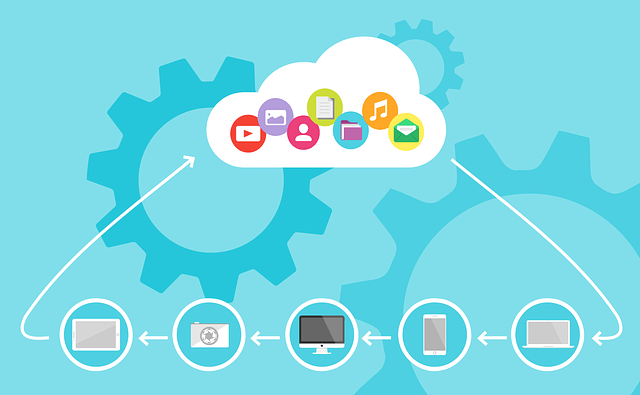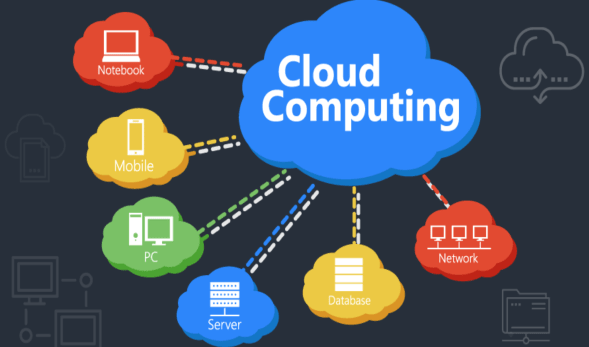Hello!
Cloud computing has existed for nearly two decades. Even though it offers many benefits, including cost benefits and competitive advantages, large numbers of businesses continue to use it without realizing them.
 A study by International Data Group found that 69% of businesses already use cloud technology in some capacity, while 18% plan to adopt cloud computing solutions at some point. According to Dell, companies that invest heavily in big data, cloud, and mobility enjoy a 53% higher rate of revenue growth than their competition.
A study by International Data Group found that 69% of businesses already use cloud technology in some capacity, while 18% plan to adopt cloud computing solutions at some point. According to Dell, companies that invest heavily in big data, cloud, and mobility enjoy a 53% higher rate of revenue growth than their competition.
This data shows that a growing number of tech-savvy companies and industry leaders are recognizing the many benefits of cloud computing. They are also using the technology to improve their businesses, serve customers better, and increase their overall profit margins.
This all seems to suggest that, given the direction the industry is heading in, it’s never been more important to get your head in the cloud.
 Cloud computing has been a popular term in the past few years. It is becoming increasingly difficult for organizations and individuals to keep their critical information, programs, and systems running on in-house computers due to the rapid increase in data usage that has accompanied the transition into the digital 21st Century.
Cloud computing has been a popular term in the past few years. It is becoming increasingly difficult for organizations and individuals to keep their critical information, programs, and systems running on in-house computers due to the rapid increase in data usage that has accompanied the transition into the digital 21st Century.
This problem has been solved for almost as long as the internet. However, it has just recently become widely used by businesses.
Cloud computing works on the same principle as a web-based email client. Users can access all the features and files without needing to store the majority of that system on their computers. Many people use cloud computing services, even though they don’t know it.
Gmail, Google Drive, and TurboTax are all cloud-based apps. Users send their data to the cloud-hosted server, which stores it for later access. These applications are useful for personal use but even more so for businesses who need to access large quantities of data via an online connection.
 Employees can, for example, access customer information using cloud-based CRM software such as Salesforce via their smartphone or tablet at work or on the road. They can also share this information quickly with authorized parties around the globe.
Employees can, for example, access customer information using cloud-based CRM software such as Salesforce via their smartphone or tablet at work or on the road. They can also share this information quickly with authorized parties around the globe.
There are still leaders who are hesitant to commit to cloud computing solutions for their organizations. We’d love to share this information with you in a few moments.
Top 12 Business Advantages of Cloud Computing
1. Cost Savings
You are not the only one concerned about the cost of switching to cloud computing. 20% are also worried about the initial costs of setting up a cloud-based server.
However, those trying to evaluate the benefits and drawbacks of cloud computing need to look beyond the initial cost. They also need to consider the ROI.
Cloud computing will allow you to save time and money on project startup by allowing you easy access to your company’s data.
 Cloud-computing services can be paid as you go, so it’s not a concern that they will end up paying for features they don’t need or want. If you don’t use the cloud’s features, you won’t be spending money.
Cloud-computing services can be paid as you go, so it’s not a concern that they will end up paying for features they don’t need or want. If you don’t use the cloud’s features, you won’t be spending money.
Pay-as-you-go also applies to the data storage space required to service your clients and stakeholders. This means you will get the exact amount you need and you won’t be charged extra for space you don’t use. These factors combine to bring lower costs and better returns.
Bitglass surveyed half of the CIOs and IT leaders who reported that cloud-based applications resulted in cost savings for 2025.
2. Security
Cloud computing is a popular option for many organizations. How can you be sure that files, programs, and other data are protected if they’re not kept securely on-site? What’s to stop a cybercriminal from accessing your data remotely? Quite a lot.
One, the cloud host’s primary job is to monitor security. This is significantly more efficient than an in-house system where organizations must split their efforts among a multitude of IT issues.
 While most businesses aren’t open to the possibility of data theft within their organization, a shockingly large percentage of data thefts happen internally and are committed by employees.
While most businesses aren’t open to the possibility of data theft within their organization, a shockingly large percentage of data thefts happen internally and are committed by employees.
It can be safer to keep sensitive information off-site when this is true. This is abstract. Let’s look at some solid statistics.
RapidScale claims that 94% of businesses experienced an increase in security following switching to the cloud. 91% also claimed that the cloud makes compliance easier for them. This increased security can be attributed to the encryption of data that is transmitted over networks and stored on databases.
Encryption makes your information less accessible to hackers and anyone else who is not authorized to see it. Cloud-based services can have different security settings depending on who is using them.
Only 9% of cloud users can claim disaster recovery within four hours, while 20% of cloud users claim it in less than four hours.
3. Flexibility
 Your company has a limited amount of resources to allocate between its various responsibilities. Your current IT solutions will make it difficult for you to focus on customer satisfaction and business goals.
Your company has a limited amount of resources to allocate between its various responsibilities. Your current IT solutions will make it difficult for you to focus on customer satisfaction and business goals.
Relying on an outside company to manage your IT infrastructure and hosting will allow you to spend more time on the areas of your business that directly impact your bottom line.
Cloud hosting offers more flexibility than hosting on a local server. Cloud-based services can provide extra bandwidth instantly and without the need for a costly (and complex) upgrade to your IT infrastructure.
This increased freedom and flexibility can significantly improve the efficiency of your company. According to InformationWeek, 65% of respondents said that “the ability to respond quickly to business needs” was the main reason a company should migrate to a cloud environment.
4. Mobility
 Cloud computing provides mobile access to corporate data via smartphones or devices. This is an excellent way to make sure that everyone is included, especially considering more than 2.6 billion smartphones worldwide today.
Cloud computing provides mobile access to corporate data via smartphones or devices. This is an excellent way to make sure that everyone is included, especially considering more than 2.6 billion smartphones worldwide today.
This feature is great for staff with hectic schedules or those who live far from the office. They can keep up with their clients and coworkers instantly.
For better work-life balance, the cloud allows you to provide easily accessible information to remote, freelance, and travel sales staff. It’s no surprise that organizations with employee satisfaction as a priority are 24% more likely to increase cloud usage.
5. Insight
As we continue to move into the digital age, it becomes clearer and more accurate than “knowledge is strength” is no longer the operative phrase. Data is money.
 There are valuable, actionable nuggets hidden within the millions of bits that surround customer transactions and business processes. It can be difficult to sort through all that data and find the kernels if you don’t have access to the right cloud computing solution.
There are valuable, actionable nuggets hidden within the millions of bits that surround customer transactions and business processes. It can be difficult to sort through all that data and find the kernels if you don’t have access to the right cloud computing solution.
These insights can help you increase efficiency and create action plans to achieve your organizational goals. Sunny Delight, for example, was able to increase its profits by approximately $2 million per year and reduce $195,000 in personnel costs using cloud-based business insight.
6. Increased collaboration
Collaboration should be a priority for businesses with two or more employees. It is not worth having a team that is not able to work together as a team. Collaboration is made easy by cloud computing.Cloud computing makes collaboration easy and secure.
Team members can easily view and share information securely through a cloud-based platform. Cloud-based services offer social spaces that allow employees to collaborate and connect across the organization.
This increases interest and engagement. Although collaboration is possible with or without cloud computing, it won’t be as efficient nor easy as with a cloud-computing system.
7. Quality Control
 Poor quality reporting is one of the biggest hindrances to a company’s success. All documents can be stored in one location and one format in a cloud-based platform.
Poor quality reporting is one of the biggest hindrances to a company’s success. All documents can be stored in one location and one format in a cloud-based platform.
You can keep data consistent, avoid human error, and keep track of revisions and updates by having everyone access the same information.
However, if the information is managed in silos, employees may accidentally save different versions of documents. This can lead to confusion and diluted data.
8. Disaster Recovery
Control is a key factor in determining the success of any business. No matter how well-informed your company is about its processes, there are always things out of your hands.
 In today’s market, even small amounts of downtime can have a devastating effect. Your services’ downtime can lead to loss of productivity, revenue, or a bad reputation.
In today’s market, even small amounts of downtime can have a devastating effect. Your services’ downtime can lead to loss of productivity, revenue, or a bad reputation.
While there are no ways to avoid or anticipate disasters that could harm your organization, there are things you can do to speed up your recovery.
Cloud-based services offer fast data recovery in all types of emergencies, including natural disasters and power outages. 20% claim that cloud-based services can provide disaster recovery within four hours while only 9% of non-cloud users could do the same.
A recent survey revealed that 43% of IT executives plan to invest or improve cloud-based disaster relief solutions.
9. Loss Prevention
 Your valuable data will be tied to your office computers if your company doesn’t invest in cloud computing. Although this may seem like a problem it could lead to permanent data loss if the hardware fails.
Your valuable data will be tied to your office computers if your company doesn’t invest in cloud computing. Although this may seem like a problem it could lead to permanent data loss if the hardware fails.
Computer malfunctions can be caused by many factors, including viruses, age-related hardware damage, user error, and simple human error. They can also be lost or stolen, even though they are often misplaced.
You could lose all your information if you don’t have access to the cloud.
A cloud-based server means that all information uploaded to it is safe and accessible from any computer connected to the internet.
Also read:
- How to choose The Perfect Domain Name
- xAI Seeks $9 Billion Funding Boost Amid Heavy Spending and Modest Revenue
10. Automatic Software Updates
There is nothing more frustrating than waiting for system updates to be applied to those with a lot of work. Cloud-based apps automatically update and refresh themselves. This saves IT departments from having to do a manual update across the entire organization.
This reduces the time and cost of IT consulting outside. According to PCWorld, 50% of cloud users cited the cloud’s ability to use fewer IT resources.
11. Competitive
Cloud computing is becoming more popular, but there are still people who prefer to keep everything local. While they have the option to do so, it puts them at a disadvantage when compared with others who can access the cloud.
 You’ll learn more quickly if you adopt a cloud-based solution than your competitors. According to a Verizon survey, 77% believe cloud technology gives them a competitive edge. 16% consider this advantage significant.
You’ll learn more quickly if you adopt a cloud-based solution than your competitors. According to a Verizon survey, 77% believe cloud technology gives them a competitive edge. 16% consider this advantage significant.
12. Sustainability
It’s not enough for organizations to simply place a recycle bin in their breakroom to claim they are doing their bit to save the environment. Sustainable business requires solutions that reduce waste at all levels of the company. Cloud hosting is more eco-friendly and leaves less carbon footprint.
Cloud infrastructures promote environmental proactivity by powering virtual services instead of physical products and hardware.
This reduces paper waste and improves energy efficiency. It also allows employees to access the internet from anywhere. Based on cloud computing and other virtual data options, a Pike Research report forecasts that data center energy consumption will decrease by 31% between 2010 and 2020.
Thank you!
Subscribe to our newsletter! Join us on social networks!
See you!






